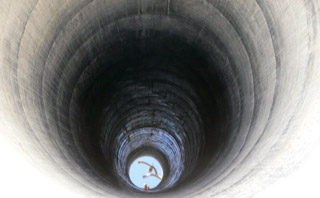
Water is a life force—it has the power to transform lives, alter societies and change communities from within.
In the desert state of Rajasthan, annual rainfall ranges from an average of 60 mm in the west to 600 mm in the east and south. Despite the government's efforts to provide water, drinking water shortages exist even in regions with high rainfall.
"The main reason for this is people's dependence on others to solve their problems," says Farhad Contractor of Sambhaav Trust, which works with rural communities to strengthen local ecological systems.
But the situation is not the same everywhere. In certain areas of Barmer and Jaisalmer districts in west Rajasthan, communities have taken it upon themselves to handle their water, food and fodder needs, and have come up with long-term sustainable solutions.
Just in the last two years, more than 100 beris (small community wells for drinking water), 10 lakes, 5 wells, 100 acres of agricultural land and 1,200 bighas of common pasture land have been revived. In more than 60 villages, people now have access to water, and are able to produce food and fodder for their livestock. "Most of all, they have their own self-respect and pride," says Farhad.
This work has brought many changes with it. Villagers who had to walk 10 kilometres to get water now have water in their village. Communities which never ever did agriculture now have their own lands to do so. People who would migrate to other states for work now live and work in their own villages.
What is remarkable is how communities have pooled in their resources to work towards self-reliance. The youth are more attentive towards conserving natural resources and have become active in local governance.
Following Sambhaav Trust's work, people from across India have started taking steps towards conserving water. Around 4,000 people have contacted Farhad with messages of appreciation and requests to learn more. Senior government officials have played a key role in setting up water harvesting systems. Schools have installed water harvesting tanks so that children can have access to clean drinking water. This is a good reminder for all of us that it is indeed the little drops that make an ocean.